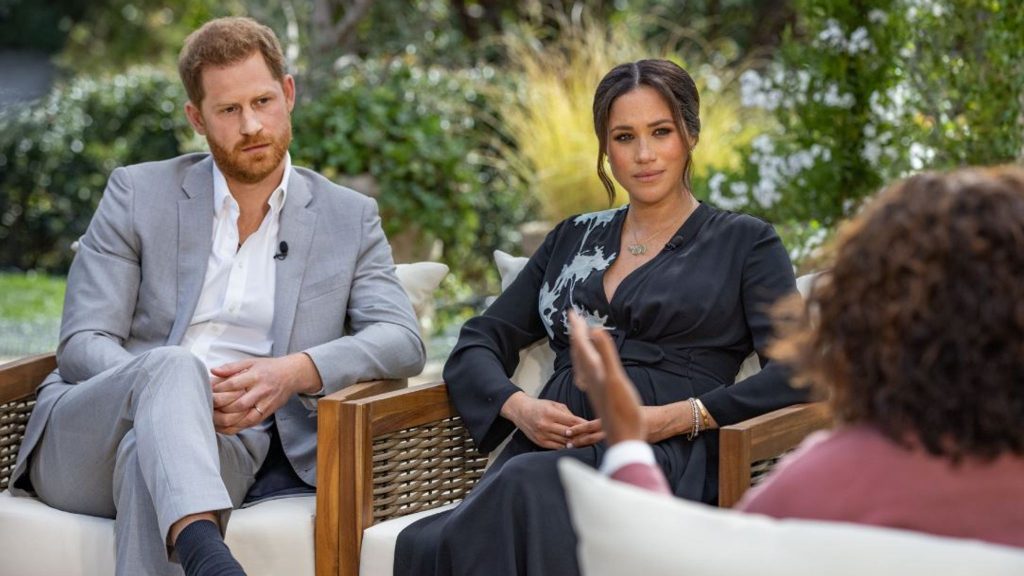19 Mar WILL HARRY & MEGHAN’S INTERVIEW CREATE A ROYAL MESS OF HER MAJESTY’S ESTATE PLAN – OR JUST A ROYAL PAIN?
Harry and Meghan’s recent explosive interview by Oprah Winfrey has sent shockwaves to the Royal family. Will this result in a different estate plan for Queen Elizabeth? Although Prince Charles and Prince William were probably already likely to receive a king-sized portion of Her Majesty’s estate upon her passing, the interview made me wonder about prior and future estate planning (at least under Texas law) of the Royal family including:
- Princess Di’s testamentary trust for Harry.
Harry mentioned that he and his wife, Meghan Markle, have been living off his inheritance from his mother, Princess Diana. According to various sources, Harry and his brother (Prince William) were each left $8.9 million in a trust within her Will. The testamentary trust provided that he would be entitled to a portion of the funds when he reached age 25 and the remainder when he reached age 30 (he is now 36). When he reached age 30, the trust was reportedly worth $14 million. This type of testamentary trust is very common in estate planning as many children or grandchildren or other potential under-aged beneficiary do not mature until around that age. There is often a standard (such as health, education, maintenance and support) so that distribution can be made to the beneficiary even before reaching the stated age (although a trustee would be in charge of the assets in the trust until the age as set forth in the Will).
- The Queen mother would have considered a generation-skipping transfer or dynasty trust for Harry’s benefit if she were American and he was named as a beneficiary.
When the Queen mother (Harry’s great-grandmother) died at age 101 in year 2002, it was thought that she left $18 million of her $100 million estate to her grandchildren and great-grandchildren. However, according to a Forbes report in February 2021, Harry actually received nothing from his great-grandmother. Under U.S. laws, there is a generation skipping transfer tax if the inheritance is greater than the estate tax exemption which is presently $11.7 million (although this is scheduled to sunset to $5 million adjusted for inflation as of January 1, 2026 and Congress can lower this threshold prior to that date). The tax rate for transfers in excess of the limit is 40%. If married, the Generation-Skipping Transfer Tax exemption is lost if not used on the death of the first spouse to pass. In order to avoid this substantial tax for giving to one generation or more below the donor (which would have been the case if Harry inherited from the Queen mother), it is common for wealthy individuals to create a long-term Generation Skipping Transfer (GST) tax exempt trust (often called “dynasty” trusts) to allow trust assets to pass from generation to generation without imposition of the transfer tax. Reduction of the generation-skipping transfer tax exemption or curtailing the use of perpetual trusts with a duration of more than 90 years will diminish the effectiveness of dynasty trusts. It would not be surprising if Congress made a change to existing laws.
- Who will inherit when Queen Elizabeth dies or is no longer Queen?
Unlike in the United States where you can determine your beneficiaries, Prince Charles (if he survives his mother, Queen Elizabeth) stands to be the primary beneficiary of her estate as he would become king. However, Prince William would then assume control of the Duchy of Cornwall (with over $1 billion of real estate) which makes over $20 million a year. The Harry-Meghan interview had no impact on Harry’s inheritance – Prince Harry is just not being paid to be a Royal as he previously was before asking to be relieved of his royal duties.
Furthermore, the Crown has legal tax exempt status (no income tax, capital gains tax, estate or inheritance tax). If Her Majesty was a wealthy American, various estate planning techniques might be utilized ranging from family limited partnerships to grantor annuity trusts to charitable remainder trusts, etc.
- Should Meghan Markle (as a U.S. citizen) revise her estate planning as she is married to a non-citizen? Does she need a QDOT?
First, if you hold assets in a different country, then you should have a Will in each country. If Meghan owns property in both the U.S. and the United Kingdom, then she should have a valid Will for both.
Second, it should be noted that U.S. citizens who have large estates and want to defer federal estate taxes when the U.S. citizen dies and leaves a large amount to their non-citizen spouse, many consider a Qualified Domestic Trust (QDOT). Married U.S. citizens get a tax break called the unlimited marital deduction when the first spouse dies. However, non-U.S. citizens do not get that tax break. So, if Meghan Markle had a large estate (the present estate tax limit is $11.7 million but will be reduced as mentioned above) and she died first, Prince William might have to immediately pay estate tax unless a QDOT was prepared. If a QDOT was prepared, her assets would go to the trust instead of to Harry. Prince Harry would receive the income from the assets transferred to the trust, but the trust would own the assets. One of the trustees would need to be a U.S. bank. Everybody’s planning is different, as there are certain exceptions to the general rules.
If interested in learning more about this article or other estate planning, Medicaid and public benefits planning, probate, etc., attend one of our free upcoming virtual Estate Planning Essentials workshops by clicking here or calling 214-720-0102. We make it simple to attend and it is without obligation.











